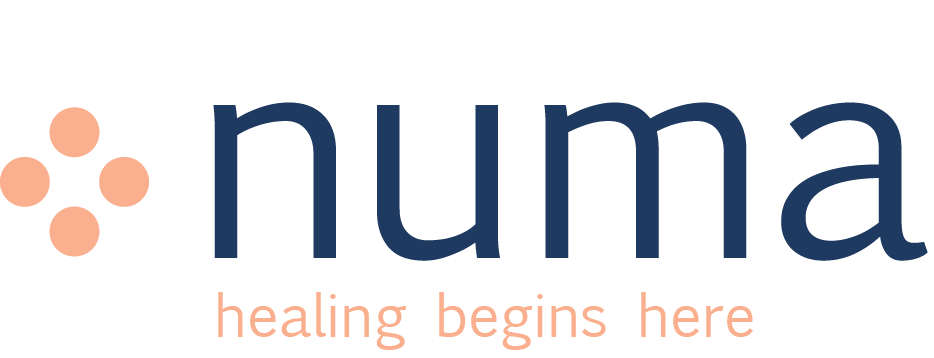The heart is one of the most central and important organs of the body. So, of course, alcohol and substance abuse affects the heart, too. Your heart health can influence the way your mind and body function. When these certain neurological and biochemical changes take place in a person’s body after prolonged alcohol and substance […]
Can you imagine waking up from a short sleep, already having crossed the toughest barrier of withdrawal, all without the pain that usually comes with it? This is called rapid detox, and it's a method that uses anesthesia to fast-forward through the discomfort. But is it safe? And should you do it?
At NUMA Recovery Centers, we stand ready to guide you through this initial and important phase of healing. With a compassionate, individualized approach, we're here to ensure you never walk alone on your path to detox and recovery. We will answer your questions regarding Rapid Detox. Learn more about how we can assist you at NUMA Recovery Centers.
Quick Points
-
Rapid detox offers a fast way to start overcoming opioid addiction, using general anesthesia to ease withdrawal symptoms.
-
Ultra-rapid detox accelerates the process even further, minimizing the time under anesthesia and potentially reducing physical and mental discomfort.
-
Risks include serious health complications and the challenge of maintaining long-term abstinence without comprehensive follow-up care.
-
Costs can vary widely and are not always covered by insurance.
-
Choosing between rapid detox and medical detox depends on individual needs, so it's important to consult with a medical professional.
-
NUMA Recovery Centers provide a comprehensive approach to addiction treatment, from detox to rehabilitation, focusing on lasting recovery.
What is Rapid Detox?
Rapid detox is a method used in addiction treatment, especially for opioid addiction.
This process aims to quickly rid your body of the substances it depends on. It's like your body is getting a fresh start in its battle against opioid dependency.
During rapid detox, patients undergo the detox process under general anesthesia. This means you are asleep, and while you're in this state, a medication that speeds up the opioid withdrawal symptoms is administered.
In simpler terms, rapid detox helps to cleanse your body from the effects of drug abuse without the discomfort usually experienced. This can be especially helpful if you're struggling with substance abuse and looking for opioid addiction treatment.
By choosing to undergo rapid detox, patients often aim to reduce drug cravings and tackle opioid use disorder more effectively.
But still, it's necessary to consult with a specialist in addiction medicine first to understand if this approach is suitable for you, considering both the benefits and the risks involved.
What is Ultra-Rapid Detox?
Ultra-rapid detox takes the concept of a rapid detox program to an even more accelerated level.
This is particularly focused on individuals facing severe opioid dependency because it offers a fast-track method to combat the challenging opioid withdrawal process.
Unlike traditional rapid detox which already speeds up the detoxification period, ultra-rapid detox involves placing patients under anesthesia for a shorter duration, during which the body undergoes the withdrawal symptoms.
Administered in specialized rapid detox centers, this method uses heavy sedation to significantly reduce the awareness of symptoms associated with opioid withdrawal.
The idea is to provide a medically assisted detox that allows you to bypass the acute discomfort often experienced during the detox phase. This opiate detox strategy aims to quickly eliminate opioids from your body and minimize the physical and mental strain.
The critical difference here is the intensity and speed of the treatment.
Ultra-rapid detox is designed for people seeking to receive treatment in the most expedited manner possible and to reduce the time spent under opioid dependency's grip.
How Do They Work?
Rapid drug detox is a specialized detox treatment aimed at helping individuals recover from opiate addiction and other forms of drug abuse. Here's a clearer breakdown of its process:
Procedure Overview
-
Anesthesia: Patients are placed under anesthesia to allow them to bypass the discomfort of withdrawal symptoms during the detox phase.
-
Medication-Assisted Treatment (MAT): Specific medications are administered to facilitate the elimination of drugs from the body to ease the physical aspects of opiate dependence.
Components
-
Detox Under Medical Supervision: This method is a type of medical detox to ensure safety and monitoring throughout the procedure.
-
Support for Mental Health: Integral to the process is addressing the mental health challenges associated with addiction to prepare clients for subsequent therapy and recovery stages.
Benefits Compared to Traditional Methods
-
Speed and Comfort: Offers a quicker and less painful start to the journey of overcoming addiction, compared to prolonged withdrawal periods in other detox methods.
It's important to have a comprehensive treatment plan post-detox for lasting freedom from addiction.
Dangers and Risks of Rapid Detox Programs
There are potential dangers and risks involved in rapid detox programs, and clients should be aware of:
Mental Health Concerns
Rapid detox can impact your mental health. The process may exacerbate existing mental illness or trigger new psychological issues due to the intense and quick changes in the body's chemistry.
Risk of Serious Complications
Although rare, there are serious complications associated with rapid detox, such as cardiac arrest. The stress on the body during the rapid withdrawal from opioids can lead to unexpected physical symptoms and, in some extreme cases, life-threatening conditions.
Maintaining Abstinence
Post-detox, the challenge to maintain abstinence remains. Rapid detox works to quickly remove drugs from the body, but it does not address the long-term psychological aspects of addiction. Without comprehensive treatment including therapy and support, the risk of relapse into drug use is significant.
Take note of these risks before deciding on rapid detox as a treatment option. Rapid detox should not only be immediate but also a safe and sustainable path to recovery from opioids and other drugs.
How Much Does Rapid Detox Cost?
Costs for rapid detox tend to vary. Here are some factors to consider:
Insurance Insights
-
Health Insurance: Coverage for rapid detox varies. Always check with your insurer about addiction treatment coverage as this can significantly offset costs.
-
Coverage Details: While some insurance plans may partially cover rapid detox, they might not cover all aspects of follow-up care necessary for sustained recovery.
Cost Breakdown
-
Average Price: The cost for rapid detox programs can range significantly, but on average, expect to pay between $10,000 and $15,000. This price includes the medical procedure and hospital stay.
-
Follow-Up Care Costs: Continuous care post-detox such as counseling and support groups may incur additional costs.
Talk with your insurance provider and potential treatment centers to fully understand the financial commitment required. Planning financially for both the immediate procedure and the essential follow-up care will support a more successful recovery.
Should I Choose a Rapid Drug Detox or Medical Detox?
Choosing the right detoxification method is a very important step towards a drug-free life and long-term success in disease control.
Rapid Drug Detox
-
Advantage: Rapid detox works by quickly eliminating opioids from your system under general anesthesia to reduce the immediate discomfort of withdrawal.
-
Disadvantage: The fast pace may not provide enough time for mental and emotional adjustment which potentially increases the risk of relapse.
Medical Detox
-
Advantage: This slower process allows for gradual reduction of drug dependence which offers a more comprehensive approach to treatment and recovery.
-
Disadvantage: It requires more time and may involve experiencing uncomfortable withdrawal symptoms.
The right path depends on your specific situation, health condition, and personal preferences. Consulting with a healthcare provider can help determine the best approach for achieving a lasting recovery.
How Can NUMA Assist?
NUMA Recovery Centers offers comprehensive detox and rehabilitation services in Los Angeles, California, focusing on treating drug and alcohol addiction.
We provide individualized care addressing the physical, emotional, and psychological needs of those struggling with substance abuse. Our approach includes detoxification to remove toxins from the body, followed by rehabilitation to learn coping and relapse-prevention skills, aiming for a lasting recovery.
For more detailed information on how NUMA can assist, contact us.
What is Aftercare? Aftercare programs are one of the most important parts of the recovery process. They include any type of care offered after the detox or residential treatment. Now that you’re sober, aftercare programs focus on how to keep it that way. They offer tools, strategies, resources, and support networks to make sure you […]
Opioid misuse has reshaped the landscape of public health in the United States, touching urban, suburban, and rural communities alike. In cities like Los Angeles—where access to prescription medications is widespread and stressors are high—opioid addiction has become an ongoing crisis that affects individuals, families, and the healthcare system at large. Many people still associate […]



